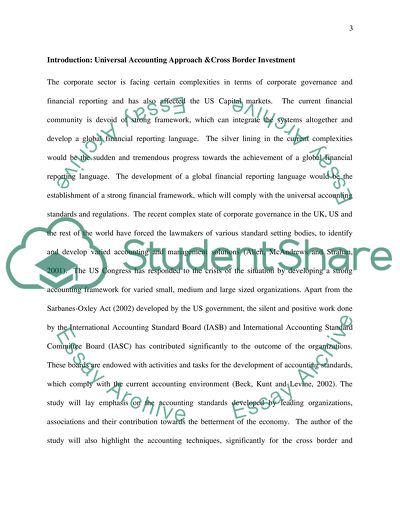Cite this document
(“Universal Accounting Approach &Cross Border Investment Essay”, n.d.)
Universal Accounting Approach &Cross Border Investment Essay. Retrieved from https://studentshare.org/finance-accounting/1486664-accounting-theory
Universal Accounting Approach &Cross Border Investment Essay. Retrieved from https://studentshare.org/finance-accounting/1486664-accounting-theory
(Universal Accounting Approach &Cross Border Investment Essay)
Universal Accounting Approach &Cross Border Investment Essay. https://studentshare.org/finance-accounting/1486664-accounting-theory.
Universal Accounting Approach &Cross Border Investment Essay. https://studentshare.org/finance-accounting/1486664-accounting-theory.
“Universal Accounting Approach &Cross Border Investment Essay”, n.d. https://studentshare.org/finance-accounting/1486664-accounting-theory.


